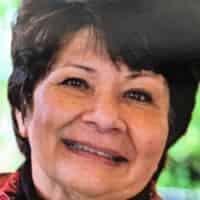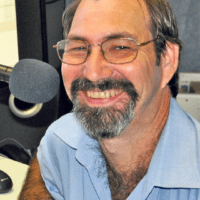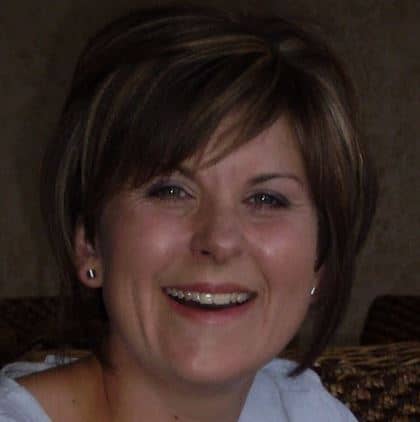

I, Anka Barbir was born in Privlaka on the Dalmatian peninsular in 1943. From my village you could just see the Italian coast. At that time many young people took boats to escape to Italy. Many drowned. Others were caught by the coast guard. My cousin and his girlfriend were one couple who made it to an Italian refugee camp where they married and from there immigrated to Australia. It seemed to me that everyone went to Australia and as long as I can remember I wanted to go as well.
When I was 16 my cousin offered to sponsor me. I had to go to the police for papers to apply for immigration. I was interrogated about why I wanted to go. It took 3 years to get papers and with the help of a Catholic agency I left Croatia on 22 April 1963. There were two ships – the Marconi and the Galileo. My ship had 3000 immigrants and 400 crew. The food and everyone were good but I get very sea sick and it took 22 days! We first docked in Freemantle and a sailor asked where I was getting off. When I said Sydney, he laughed and said ‘By the time you get to Sydney you will have died from sea sickness”.
Arriving in Sydney on 15 May 1963, I expected to see my cousin but he was cutting cane. He and his friend had worked in the steelworks but found it did not pay enough for them to get ahead. His wife lived with her two children and his friends’ wife and two children in a small house in Ferry Meadow, between Sydney and Wollongong. I was devastated. In my mind Australia was just like Croatia. I would live in a village with people I knew. We would laugh and sing and my family would join me. But I was with people I did not know. I could not talk to others and could not find work because I could not speak English. I was so lonely. Eventually I did find work in a Café owned by a Croatian lady who was good to me and I was content. Soon after my cousin returned. He felt responsible for me – a young single girl, and he was anxious about my reputation for my family’s sake. My cousin would keep me away from single men interested in a single girl. This made me feel even more lonely and isolated and I cried to myself many times. I tried hard not to let my family know how sad I was. Their letters showed how worried they were about me and that only made me cry harder.
At the end of the year, the tobacco season started and my cousin felt he could make more money in Queensland so decided to take his family with him. That included me. I wanted to stay but he did not want to leave a single girl alone. He and his friend worked for an Italian family in Dimbulah and we lived in the barracks on the farm. It was not the life I had dreamed of. It was the bush. As a woman I could only work stringing tobacco. It was hard to earn money and I could not ask my cousin for any as he had a young family to support. I begged him to ask the farmer if I could help in the paddocks. I started with pulling suckers off tobacco plants. In the mornings the plants were full of dew and I got drenched. And it was so hot! I had never seen tobacco plants before and I struggled not to snap off leaves. I was very slow in initially, so my cousin would do his work and then help me.
Although there were many Croatians in Dimbulah, working days were long and you only met up on weekends. We would all pile into our Volkswagen – 5 adults and 2 kids and go off to Dimbulah to see the movies. At the end of the season, my cousin went to Silkwood for the cane cutting and I went with them. I found work in a pub. There were many immigrants there and I was treated well.
The farm next door to the one I was living in had a young Croatian couple and I became friends with the wife. On 22 March 1964 I went to see my friend and her husband’s cousin from Dimbulah was there. That is how I met my Luka, husband. After, I found out that his cousin had told him there was this Croatian girl next door and he had come to meet me. Luka, would come from Wolfram Road Dimbulah to see me. One visit he said he had bought me a bag of apples. When I asked him where they were he said he had eaten them all on the trip! Still, on 22 June 1964 we were engaged and married in Dimbulah on 22 August 1964.
Language was always a problem. In the Catholic Church you go to confession before you are married. I was worried because I could not understand what the priest was asking. Luka told me not to worry – just say “Yes” or “No”. So I said “Yes’ to one question and then “No” to the next. I answered one question “yes” and the Priest quickly responded “No, no, no, no” so I quickly changed to “No”. To this day I do not know what that question was!!
I moved into the barracks on the farm my husband share-farmed and we worked together. Soon I was pregnant and our first son was born. When he was two years old and I was pregnant with my second child we were able to buy a farm in Chewko Road. We loaded our Valiant with everything we owned – no furniture. The buildings were made of unlined corrugated iron with no glass windows – just an iron opening you pushed open with a stick. A man had returned to Croatia and gave my husband his electric saucepan. It was the only thing I had to cook with. I cooked soup for my family and my brother-in-law and his wife who were helping us. As we worked my labour pains started. As soon as my brother-in-law left I told Luka to pack up our son and take me to the Mareeba hospital. I was in labour all night and our second son was born the next morning. We had two more children, a girl and our youngest son while on the farm.
In time, we were able to build a house there and have since retired to a nice home in Mareeba. I am happy here and proud of my children and grandchildren and what we have achieved. But I still struggle with English and speak to all my children in Croatian. Now with non-Croatians married to my children and 8 grandchildren I speak a little more English. But that was always the hardest thing, not to be able to understand or make yourself understood. A friend talks about going past cane fields in a train soon after coming to Australia and someone yelled out “Look, Look”. In Croatian ‘luk’ is garlic so he thought the cane fields were garlic fields and he spend many days in wonder at how big the garlic was in Australia!
I have been back to Croatia 3 times. Over the years I was able to sponsor some of my family to come to Australia. One brother, a sailor, jumped ship in Sydney and is now settled in Melbourne. Between us we have brought all my family to Australia. I am happily settled in Mareeba and will end my days here grateful for the life we were able to build. I am a proud Australian, but I am also proud of being Croatian.


Angela was born in Mareeba but like most young people left to pursue a career in Corrections and then Community Services. On retirement, she returned to her home town and is happy to be contributing to progression and preservation.

Mick has worked casually in radio for 30 years at a number of stations including 4LM, 4GC and 4KZ whilst also working for Telstra. He joined the 4AM team taking over the Breaky Show full time in July 2014.

We are a local app design company located right here on the Atherton Tablelands. Drop us a quick email and we will help you analyse what a new or improved app might mean to your business.

Janet commenced work with the Mareeba Heritage Centre in July 2016. She had the vision to create this project and was instrumental in acquiring funds and putting the right people in place to bring this project together. Janet is passionate about community engagement and development.
© Mareeba Heritage Museum and Visitor Information Centre 2026